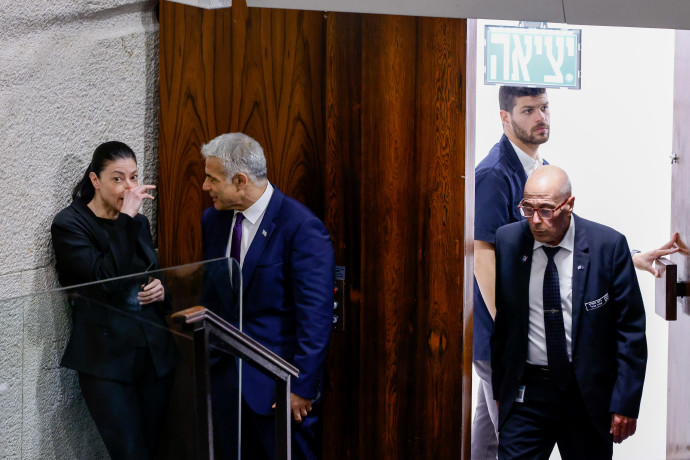The three photographs across the front page of Israel Hayom on Wednesday said it all. The big winners in the election are two convicted criminals and a third under indictment in the midst of his trial.
It was a tragic denouement for the “change” coalition, which promised to clean up governance. For in the end, despite legislative accomplishments, it changed nothing except to see the culture of governance change for the worse.
And it didn’t have to be this way.
As the coalition partners throw mud at one another, it is clear that the most obvious culprit is Labor’s Merav Michaeli, who refused to merge with Meretz despite Yair Lapid’s entreaties, and furthermore, barely passed the 3.25% threshold herself.
Yet, she blamed Lapid for sucking votes from the Left, and then flippantly declared that she can’t be blamed, for even if Meretz had passed the threshold Netanyahu would have still won. A defeatist attitude if ever there was one. But that’s not the worst of it.

Why not lower the threshold for entering the Knesset?
Yossi Verter, the senior political correspondent of Haaretz, an institution in his own right, appeared to condemn Lapid for not lowering the threshold for entering the Knesset to 2%, which all coalition party heads supported, including Avigdor Liberman, who promoted the 3.25% threshold in the first place. Even the Joint List, whose four individual factions were Liberman’s intended target, agreed.
This would have been supported by a Knesset majority and would have pushed Meretz past the sacred portal. That is to say the coalition, apart from the prime minister, wanted to move the goalposts at the last minute. Lapid would not give it the time of day.
Not only would it have been unethical to change the rules, but it would not have helped, as it might have also allowed others, like right-winger Ayelet Shaked, to break into the Knesset.
Ah, but the polls showed she was below even the 2% threshold. So it was then an attempt to manipulate the system for one party only.
However bitter it was to see the three smiling faces on the front page, lined up like a police wanted poster, the idea of the “government of change” changing the election rules would have given wonderful encouragement to those in the new far-right government who have hopes of bending the rules of democratic governance to their own advantage, already voiced by at least two of the convicted MKs on the triumphant front-page.
